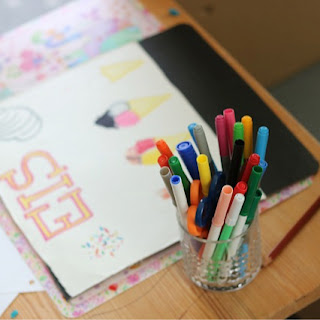Experts claim the increase, which is substantially greater than in previous years, is partly due to the lockdown limiting social interactions.
Danielle Saccardi, a language expert from Preply, has said that identifying and helping a child who has difficulties developing skills such as comprehension, clarity, voice, fluency and sound production at an early age is extremely important. But that it is not always easy to identify if a child has a speech impediment or difficulty with language development, especially amongst a large number of pupils.
Danielle Saccardi, a language expert from Preply, has said that identifying and helping a child who has difficulties developing skills such as comprehension, clarity, voice, fluency and sound production at an early age is extremely important. But that it is not always easy to identify if a child has a speech impediment or difficulty with language development, especially amongst a large number of pupils.
I know from my own experience that speech therapy delivery in schools has changed over the years my kids have been in them. It's ultimately led to less time with therapists as they spend more time training staff in techniques to use with children and less time delivering it themselves. Of course this helps with delivering some therapy potentially every day to children but results in them spending minimal time with an expert.
Although we aren't experts, parents too can help by taking on the role of supporting their child's language development. I remember one Christmas I spent each day focusing on a different technique to help my kids communicate. My Christmas Bauble & Babbles I called it. The BBC put together some helpful tips for parents to and here's what I'd add to them.
Follow their lead
Make some time for playing and chatting with your child every day and follow their lead.
My daughter, Jane, was busy make a big mess with the felt tip pens and the colouring books she had pulled off the shelf. David, our autistic son, was looking at a small book collection nearby. I thought I would try to engage him by picking up one of the books and looking at it.
But David wasn't interested in me having a book.
In fact, me having a book meant he abandoned them altogether and started playing with the felt tip pens. Reading the book I had in my hands was no good, I was only able to engage him when I started to help him line up the pens.
I asked him which colour he would like next? And he responded until we had lined up the pens a few times.
Only by following David's agenda did I manage to engage him and get him to communicate with me.
Make comments rather than asking your child lots of questions
Questions can be helpful but even a child isn't confident with what the answer could be then they might just not answer at all. When I asked David which colour pen he wanted I already knew he was very happy identifying pens by their colour but there are many things where I give him options instead to limit the number of responses he has to think about. Questions can also often feel like a test to children and they can be worried about getting it wrong.
Share books with your child
This can be any type of book. It doesn't even have to include words as this can be overwhelming for some kids. Photo albums are a great thing to look through as they are relevant and we can point out things on the photos. I don't need to ask questions but I can encourage commenting my pointing to things and waiting for my child to fill in the blank. Oh look 'Grandma is wearing a ....'
Build a good relationship with your child's school
The final piece of advice from the BBC was to build a good relationship with your school. This isn't always easy to do especially if you and the school disagree on the challenges your child is facing. We've been fortunate in that even though budgets are stretched our kids have had an EHCP so talking about their challenges is a requirement every year. If you think your child might need more support at school - I've got a post about it here.




No comments:
Post a Comment
I read all your comments and appreciate you sharing your thoughts with me and our readers. I welcome any feedback on my posts and you can always contact me directly. Thank you.